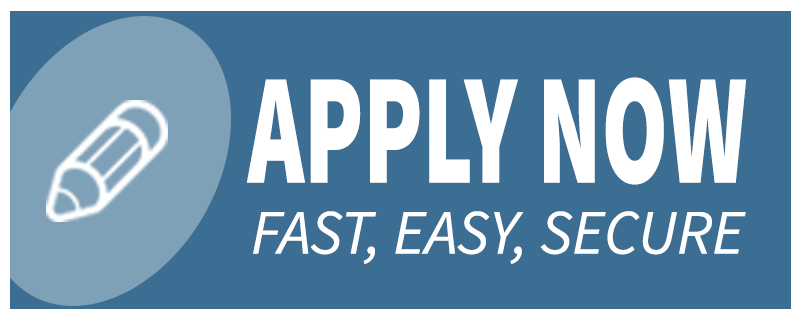9 Mortgage Approval Criteria That You Need To Know
2020-12-04 | 09:06:59

We are living in a gig economy with incredibly low interest rates, high property prices, increased regulations around loans, and technological disruption of the financial industry. There are more mortgage options available to you, and they are being promoted as simpler than ever to get approval. However, getting the best option is not as simple as one might think. Getting a good interest rate is only one part of the consideration, and pre-payment options and penalties, fees, and getting an approval is more complicated than you may realize.
Here are 9 approval criteria that lenders consider and you should understand before putting in an offer on a property.
1) Assets
Financially, you may look good on paper in regards to having positive net worth, and a substantial amount of assets in your name, such as property, ownership in a business, and/or investments that are tied up for set amount of time. However, lenders do not care as much about non-liquid assets as they do about your liquid assets that can be used as down payment, closing costs, and cash flow.
2) Cash Flow
Lenders look at your cash flow when considering you for a loan, as well as, what other financial commitments (debts) you have relative to it. Generally, your employment income is considered, but you may have investment income as well. For example, if you have rental properties, lenders will generally only consider 50% of that income towards your personal income considered for a mortgage approval. All of your ongoing debts will be consider vs. your income, such as car loans/leases, student loans, line of credit and credit cards. Even if you feel you have enough cash flow to manage your monthly payments, including a new mortgage, lenders have strict criteria around the ratios of debt vs. income.
3) Debt service ratios
Your Gross Debt Service and Total Debt Service are two ratios that the majority of lenders will look at when considering your loan approval. The maximum which lenders will usually allow falls between 34-39% for GDS and 42-47% TDS dependent on the lender and other criteria. The GDS looks at your house/property related costs vs. income and the TDS looks at all your debts vs. income.
4) Employment & Income
Lenders love to see stability in your employment and income. They prefer it if you are a full-time, permanent employee. They prefer salary, as it is consistent vs. hourly or commission. For hourly or commission based income, the lender will often look at a two year average on T4s. Employment letters, pay stubs, and T4s are often requested. For self-employed people, it can be more difficult to get financing, and either two years of NOAs, T1 Generals, business financial statements, plus business license/ownership documents may be required. Some lenders will consider company bank deposits over a six month to one year period vs. stated income for tax purposes if you are taking a lower income from your own company. If you are working on contract, this can cause an extra level of complication. Lenders will want to see the contract, and hopefully it goes beyond a year, and even then it will call for an exception from the lender and other strong elements in the deal (i.e. large down payment – low loan to value ratio) for it to be considered.
5) Down Payment
Depending on the price of the property you are buying, there are minimum amounts of down payment required. For under $500,000 you need a minimum of 5%, for $500,000 to $1,000,000 you will need a minimum of 5% on the first $500,000 and 10% on anything above $500,000. For example, if you purchased a property for $750,000 you would need $50,000 as minimum down payment. If a property is $1 million or over, you will need 20% as the minimum down payment. To have a minimum down payment required, you must meet all other lender conditions. Also, if you purchase a property under $1 million with less than 20% down, it will be considered a high ratio mortgage, default insurance is required which is arranged by the lender, the premium of which will be added to the mortgage principal at an additional cost of 2.8% to 4% of your mortgage amount, plus PST as a closing cost. A mortgage with less than 20% down is considered a high ratio mortgage. You will need to show proof of the down payment with a history of the majority of the amount for 90 days, plus closing costs.
6) Property
The lender will take into account the property you are purchasing when you apply for a mortgage. There are different rules around rural properties, farms, commercial properties, etc. However, for a regular residential property the lender will look at the appraised value when considering your loan to value ratio. LTVs higher than 80% are considered high ratio mortgages and require default insurance, and less than 80% are considered conventional mortgages. For new builds, lenders require New Home Warranties, and for condominiums lenders will require a condo certificate to verify strata (monthly maintenance) fees and ensure that the financial and management of the property are good and pose little risk. There are some condos that some lenders will not provide a mortgage for if they do not have the funds on hand to manage the upkeep and maintenance.
7) Credit History
To obtain a mortgage the lender will require a current credit check on the applicants. Having a good credit history of paying on time with past and active loans and credit is essential in having a positive credit score. A credit score between 620 and 680 minimum are required for most lenders with the exception of private lenders. A higher credit score can mean a better interest rate is offered.
8) Stress Test
A mortgage stress test is required in Canada for all mortgages and determines eligibility. It requires lenders to check that applicants can meet debt service ratio requirements with a higher interest rate than what you are going to pay is applied. The stress test interest rate is 4.79% or 2% higher than the rate being offered if higher than 2.79%.
9) Insured or Conventional Mortgage
If you purchase a property under $1 million dollars with less than 20% down payment, you will be required to get default insurance which adds an additional 2.8-4% of the mortgage amount onto your financing. In addition, you will pay PST for the cost of the insurance in your closing costs. Although the costs of a high ratio mortgage (less than 20% down payment) are higher to the borrower, they will likely get a lower interest rate than a conventional mortgage borrower due to the lender having their risk insured. The lender has greater protection on a high ratio mortgage than a conventional mortgage, and hence, there is more flexibility such as down payment amount as a percentage of price and interest rates.
As you have read, there are a lot of moving pieces to consider when it comes to getting a mortgage, and using a licensed mortgage agent that works with a wide array of lenders to help you receive the best possible mortgage options can save you money and limit stress. .For mortgage and refinancing information and advice, give me a call me, Shelley Middlebrook at 647-997-3866 or email me at shelley@rightpathmortgage.ca





